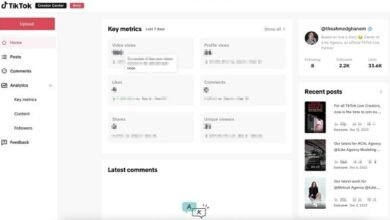X Loses Lawsuit Against the Center for Countering Digital Hate

For a free speech “absolutist”, Elon Musk certainly seems very keen to take legal action against anyone who says anything that he doesn’t like.
That’s, essentially, the core element of today’s ruling against Musk and X (formerly Twitter), with a U.S. judge dismissing X Corp’s lawsuit against the Center for Countering Digital Hate (C.C.D.H.), which X had initiated based on reports from the C.C.D.H. which suggested that hate speech has increased on the platform since Musk took over control.
Early last year, the C.C.D.H. published several reports which it claimed showed that hate speech had increased in the app since Musk’s purchase of the platform.
The first report was actually published in December 2022, with the C.C.D.H. showing evidence that slurs against Black and transgender people had significantly increased in the months after Musk took over at the app. Further reports also showed that X was not enforcing rule-breaking tweets posted by X Premium subscribers, while another also indicated that X had allowed tweets that reference the LGBTQ+ community alongside ‘grooming’ slurs to remain active.
In response, X Corp launched legal action to refute these claims, which X explained as follows:
“The Center for Countering Digital Hate and its backers have been actively working to assert false and misleading claims encouraging advertisers to pause investment on the platform. X is a free public service funded largely by advertisers. Through the CCDH’s scare campaign and its ongoing pressure on brands to prevent the public’s access to free expression, the CCDH is actively working to prevent public dialogue.”
Evidently, that justification did not resonate with the judge, who left little to the imagination in regards to his view of X’s claims.
In his ruling, Judge Charles Breyer noted that:
“Sometimes it is unclear what is driving a litigation, and only by reading between the lines of a complaint can one attempt to surmise a plaintiff’s true purpose. Other times, a complaint is so unabashedly and vociferously about one thing that there can be no mistaking that purpose. This case represents the latter circumstance. This case is about punishing the Defendants for their speech.”
Judge Breyer essentially noted that X Corp’s case lacked merit and appeared to be “a blatant attempt to intimidate researchers and critics”.
Which, again, runs counter to Elon Musk’s “free speech above all” claims. But essentially, Musk has used, and continues to use the threat of legal action to intimidate and restrict opposing perspectives, often based on questionable legal grounds.
For example, since taking over the company formerly known as Twitter, Musk has threatened and/or launched legal action against:
- The Anti-Defamation League (A.D.L.) over its publication of a report which showed that antisemitism has increased in the app under Musk
- Media Matters over its publication of a report which showed that X has been running ads alongside pro-Nazi or other hateful user posts on X
- Australia’s eSafety commission over its calls for X to outline its efforts to combat C.S.A.M. content
- The State of California over AB 587, which X claims is being enacted
“to pressure social media platforms to “eliminate” certain constitutionally-protected content viewed by the State as problematic” - A more broad “George Soros-funded groups” which have claimed that hate speech is rising on X
- A former Twitter employee who claims that Musk had been amplifying his own posts above everyone else’s
- The operator of an account which tracks the movements of Elon Musk’s private jet
- OpenAI for breach of contract over the shift from a non-profit to a for-profit model
- Meta, for copying Twitter code and stealing former Twitter employees for its Threads app
Even more concerning is the way in which Musk has sought to beef up his legal threats, with claims that X will “name and shame” advertisers who abandon the app, that X will launch “thermonuclear” lawsuits, intended to ruin people and businesses, and will “be extremely loud and will go after the boards of directors of the companies too” in its actions.
The clear intention of such statements is to quash opposition through legal intimidation.
In addition to this, Musk has also vowed to pay the legal fees of anybody who gets fired for their X posts, while he’s also offered similar for those “discriminated against by Disney or its subsidiaries”, as part of his broader push against what he sees as “woke” agendas.
And while Musk’s supporters will find a way to justify each of these actions, it’s hard to argue that many of them don’t contradict his public free speech claims.
Indeed, one of Musk’s key free speech tenets is that:
“A good sign as to whether there is free speech: Is someone you don’t like allowed to say something you don’t like? If that is the case, then we have free speech.”
Many of the above legal cases are based on things that Elon simply doesn’t like, and have no legal basis, with, again, the main impetus seemingly being to threaten and intimidate opponents to his own beliefs and initiatives.
So will this ruling change X Corp’s approach on the same moving forward?
Probably not:
Today a federal court in San Francisco issued a decision in the case X brought against the Center for Countering Digital Hate for illegally obtaining platform data to create misleading research. X disagrees with the court’s decision and plans to appeal.
— News (@XNews) March 25, 2024
So, X is already planning an appeal, and it seems like this will carry on for some time yet.
But on balance, looking at the scope of legal actions taken by Elon and Co., it is starting to seem more like a tactic, a deliberate strategy to crush opposition by threatening legal penalty.
Each case will still, of course, be tried on its individual merits. But it’ll be interesting to see whether the courts do start to factor this broader scope into their rulings.





